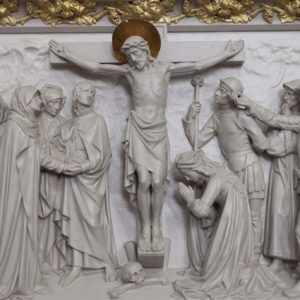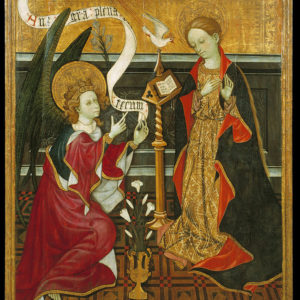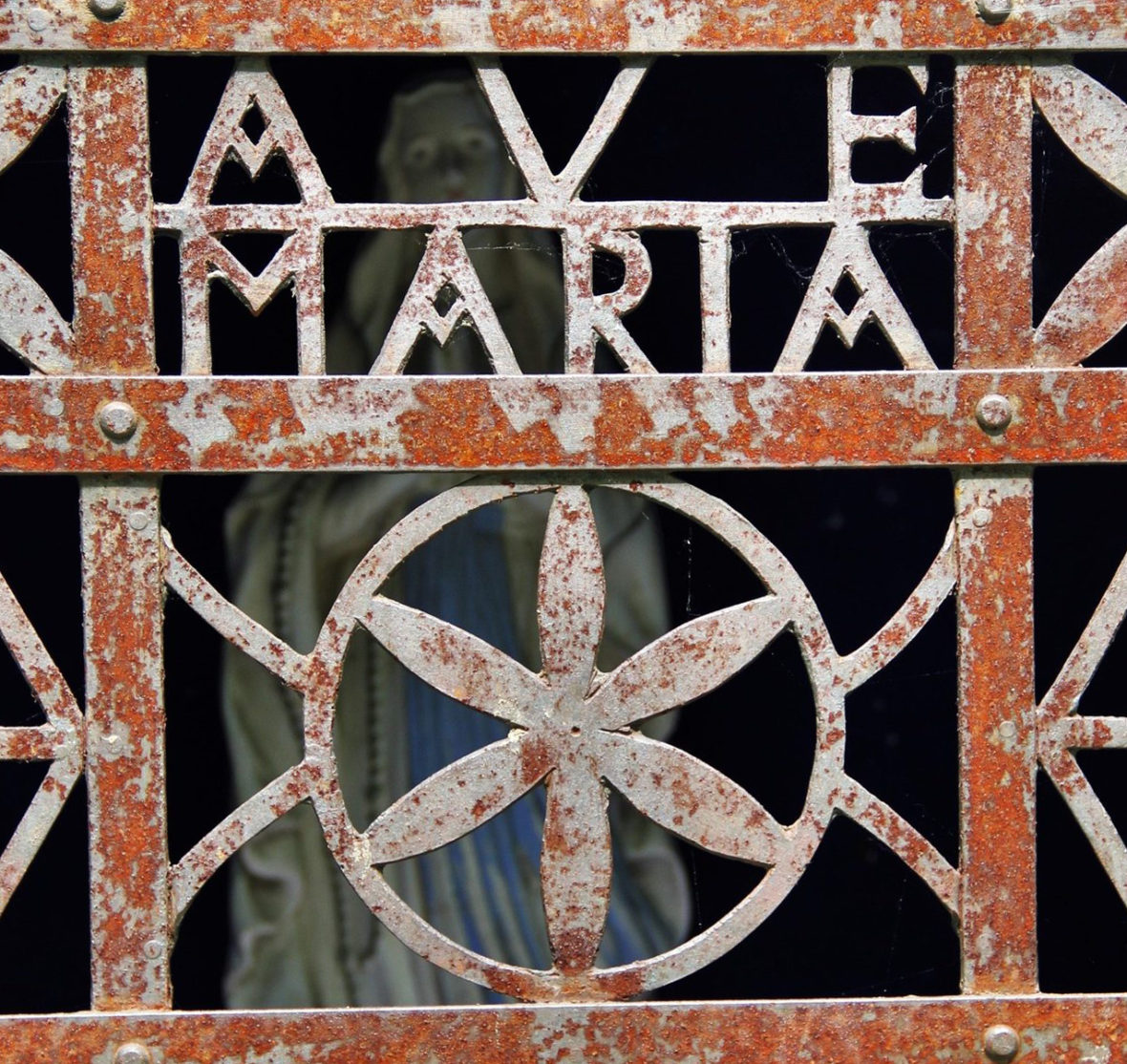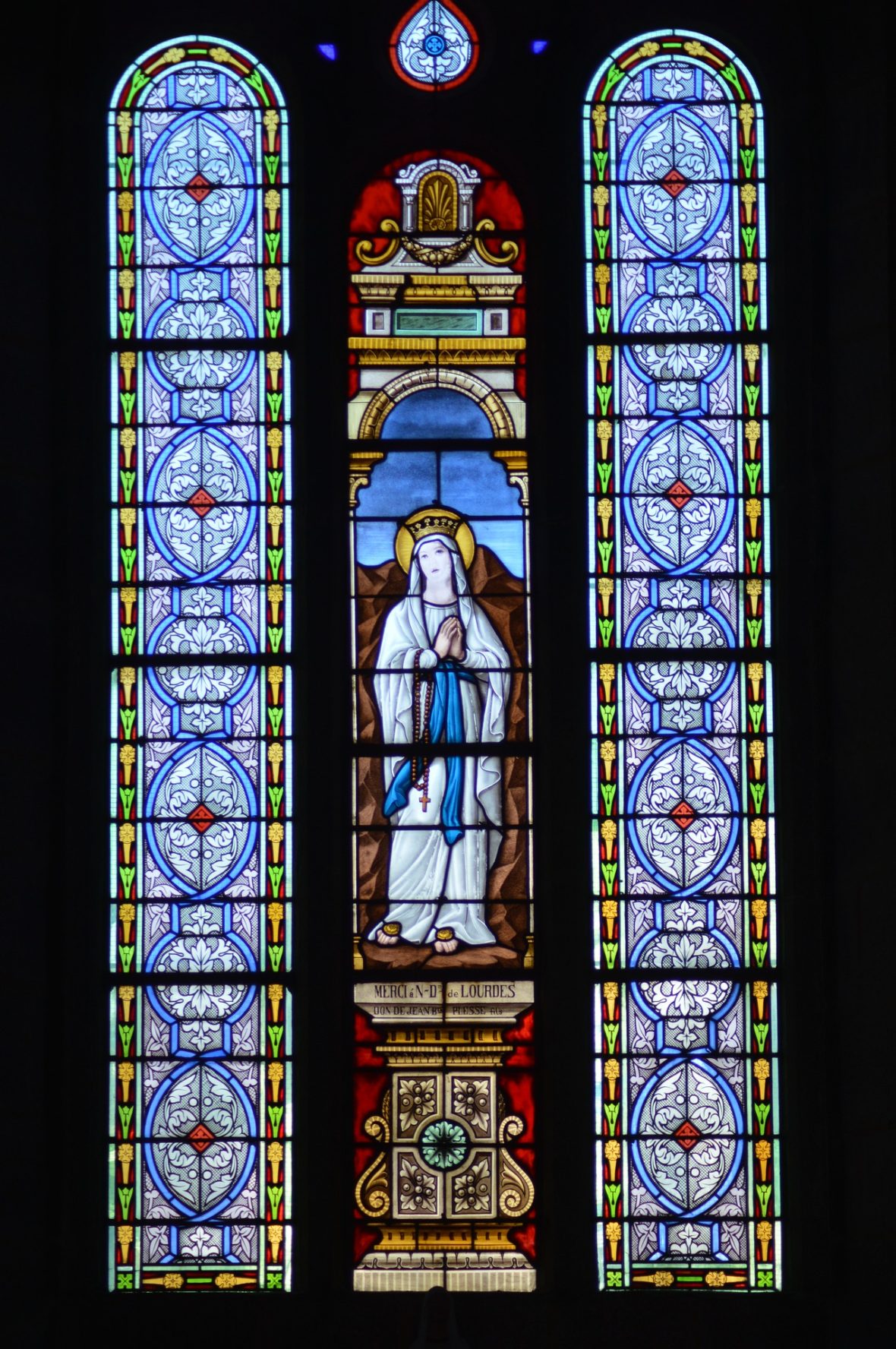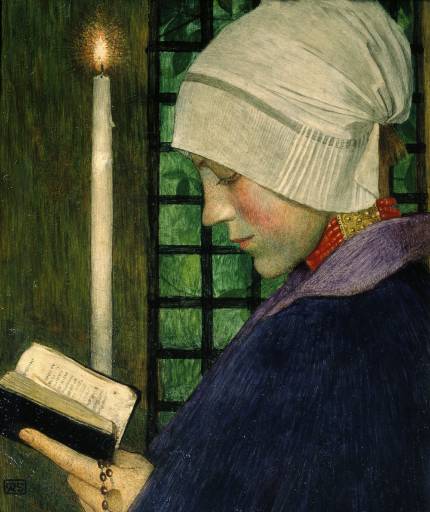Today, on the Friday of Passion Week, the Church takes a day to remember the sufferings of the Blessed Virgin Mary at the foot of the Cross, one of her Seven Sorrows. The following is an excerpt from Dom Prosper Gueranger’s The Liturgical Year which tells us about today’s commemoration. I think you will find it to be most informative. Gueranger’s excerpt begins now: This Friday of Passion Week is consecrated, in a special manner, to the sufferings which the Holy Mother of God endured at the foot of the Cross. The whole of next week is fully taken up with the celebration of the mysteries of Jesus’ Passion, and although the remembrance of Mary’s share in those sufferings is often brought before the faithful during Holy Week, yet, the thought of what her Son, our Divine Redeemer, goes through for our salvation so absorbs our attention and love that it is not then possible to honour, as it deserves, the sublime mystery of the Mother’s Compassion. It was but fitting, therefore, that one day in the year should be set…
The Annunciation 2023
“Let us run to Mary, and, as her little children, cast ourselves into her arms with a perfect confidence.” ~Saint Francis de Sales, Bishop and Doctor of the Church Tomorrow, the Roman Catholic Church commemorates possibly the most beautiful moment in the history of the world, the Annunciation; or, as the day of the Annunciation is known, Lady Day. Dom Prosper Gueranger (b. 1805- d. 1875) wrote a beautiful piece for this day, and I am posting it in its entirety. Dom Prosper wrote: This is a great day, not only to man, but even to God Himself, for it is the anniversary of the most solemn event that time has ever witnessed. On this day the Divine Word by which the Father created the world was made flesh in the womb of a virgin and dwelt among us (John i. 14). We must spend it in joy. While we adore the Son of God who humbled Himself by thus becoming Man let us give thanks to the Father who so loved the world as to give His Only…
On the History and Meaning of the Holy Name of Mary
Several weeks ago, I came upon a portion of a book about the Blessed Virgin Mary online. It was a cold day in February, and I went down the proverbial rabbit hole looking into old books that teach of the Blessed Virgin Mary. The one I stumbled upon was written in 1922 by Cardinal Alexis-Henri-Marie Lépicier, O.S.M., and is titled The Fairest Flower of Paradise: Considerations on the Litany of the Blessed Virgin, Enriched with Examples Drawn from the Lives of the Saints. As you might note (above), there is a link in the book title by which you might read the original online source for this item; but, for today, I am posting one portion of the book which is titled, Holy Mary- Predestination and Name of Mary. The text is quite informative, and chock-full of Catholic teaching on the history and meaning of the name of our Mother and Queen, Mary. The text begins now: “Thy name and thy remembrance are the desire of my soul: my soul hath desired thee in the night.” (Isaiah 26:8-9) God, having decreed that He would become…
Our Lady of Lourdes 2023
“She is the brightness of eternal light, and the unspotted mirror.” ~Antiphon for the feast of the Apparition of the Immaculate Virgin Mary at Lourdes Hail to Mary on the feast of Our Lady of Lourdes 2023!
Candlemas 2023
As we head towards the second day of February, which is the feast of the Purification of the Blessed Virgin Mary/the Presentation of Our Lord in the Temple, also known as Candlemas, I thought you might like to read a homily on this commemoration from St. Anthony of Padua (b. 1195- d. 1231). St. Anthony was noted in his day as being a gifted homilist; so, take a cup of tea or coffee, and allow the voice of our Catholic ancestor, a saint and priest, to speak today. In this short piece, you will find what the Church has taught about the woman, Our Holy Mother, who gave birth to Our Lord Jesus Christ, and carried Him to the Temple, so long ago. The homily begins now: Our Lady, blessed Mary, gave birth to the Son of God without defilement, because The Holy Ghost came upon her, and the power of the Most High overshadowed her [cf. Lk 1:35]. This good bee was ‘small’ in her humility, ‘rounded’ in contemplation of heavenly glory (which has no beginning or end), ‘dense’…

